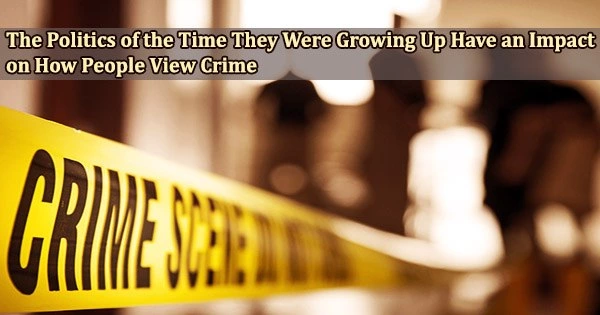According to a recent study published in the British Journal of Criminology, people’s perceptions of crime are significantly influenced by the various political eras in which they “came of age,” even decades later.
Researchers have spent more than 40 years attempting to comprehend the reasons behind and effects of a population’s fear of crime. However, no research have been able to determine if a cohort’s emotional reactions to crime were significantly influenced by the political era in which they were raised. People establish important attitudes and are especially sensitive to social events during the political environment that the respondents grew up in between the ages of 15 and 25.
A 30 year analysis of data from the British Crime Survey in England and Wales on crime fear and antisocial behavior was conducted by researchers from the Universities of Sheffield, Southampton, and Sciences Po in Paris.
By doing this, they were able to calculate the overall impacts of aging, the historical era during which the survey was performed, and the respondents’ political generation.
The pronouncements leading politicians make about crime can have a lasting impact on the crime fears of young adults. Political and popular debates about crime that are prevalent in one’s youth appear to impact the fears those individuals report through adulthood and into middle age. In this respect, our narratives of crime and disorder tell us something important about the enduring influence of our political history and the stories we hear about crime.
Stephen Farrall
The researchers discovered a significant correlation between a respondent’s political generation and their present level of criminal anxiety. For example, those who grew up under the leadership of Margaret Thatcher (1979-1990) or John Major (1990-1997) expressed the greatest level of worry about domestic burglary the same generation who witnessed a dramatic rise in property crime during the 1980s.
Meanwhile, the Wilson/Callaghan generation expressed the highest levels of worry about robbery and mugging, which was a key concern for politicians, policy makers and journalists at the time.
Responses to antisocial behaviours tell a similar story. People who grew up during the Blair and Brown governments (from the late 1990s to 2010) expressed the greatest level of concern about neighborhood issues like vandalism, loitering youths, and loud neighbors; throughout this political era, these issues were widely stressed and criminalized.
Overall, this study demonstrates that fear of crimes that were the subject of political controversy during a person’s youth remains into adulthood. The findings show that people’s perceptions of crime can persist and that people’s political views can have a long-lasting impact on how they feel about crime.
“The pronouncements leading politicians make about crime can have a lasting impact on the crime fears of young adults. Political and popular debates about crime that are prevalent in one’s youth appear to impact the fears those individuals report through adulthood and into middle age,” said one of the paper’s authors, Stephen Farrall. “In this respect, our narratives of crime and disorder tell us something important about the enduring influence of our political history and the stories we hear about crime.”
















